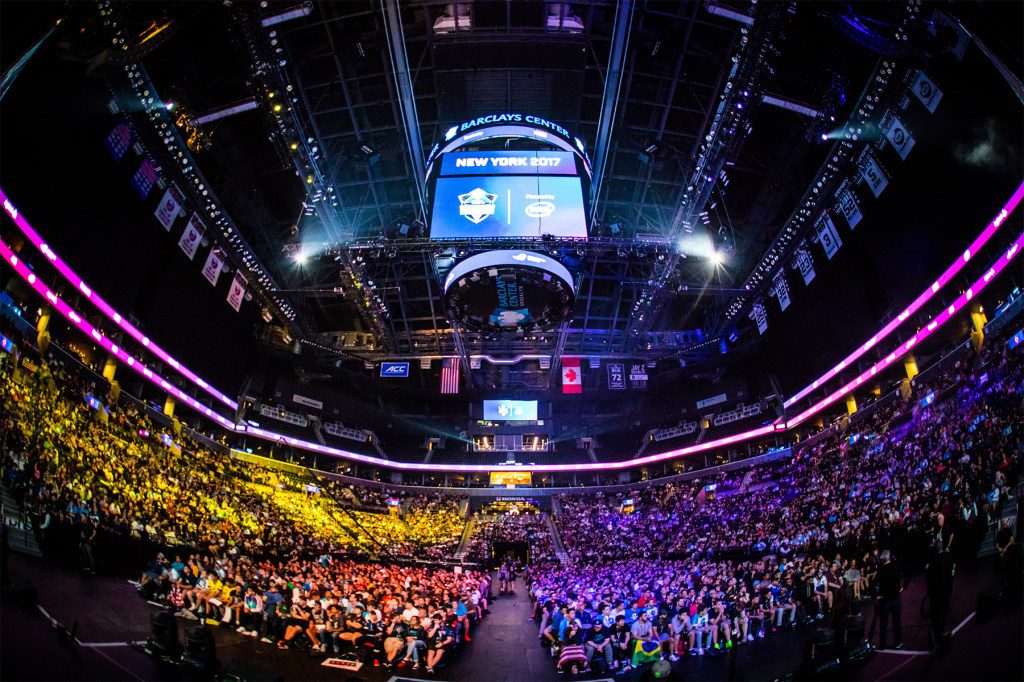The Esports Underdog Story of ESL FACEIT Group
“[Esports] is not about whether a game is competitive or not. What esports is to me is the manifestation of fandom. Do people care who wins or loses? Do you have a favorite team? Are there heroes and villains? Those are the stories that drive sports.”
These words, spoken by ESL FACEIT Group Co-CEO, Craig Levine, in a 2023 interview with Esports Insider, lay out the guiding principle of the aspiring athlete-turned-executive regarding pro gaming: It’s all about stories.
The story of gaming doesn’t just come the scripted narratives created for them, but from the people who play them. It’s stories of long nights with friends, breathlessly inching out just one more round of a split-screen shooter. It’s the local community meetup that introduced a teen to their lifelong passion. It’s the digital square where future couples meet, bonds are formed, and legacies are cemented in global competition.
But, as with so many great stories, the tale of esports begins with an underdog.
ESL One 2017 takes over New York City’s Barclay’s Center
Helena-Kristiansson; ESL FACEIT Group
Founded nearly a quarter century ago in 2000 in Cologne, ESL (then Electronic Sports League) began as something humble. An offshoot of a smaller, German-based gaming organization (Deutsche Clanliga), it began with a group of aspiring pro gamers including co-founder and entrepreneur Jens Hilgers, former ESL Co-CEO Ralf Reichert, and others who wanted not just to play, but create the very infrastructure by which others could, too.
Twenty-four years later, the foundation that they created has become the ESL FACEIT Group, the world’s largest and oldest operational esports company. Through a combined endeavor, the organization provides not just global leagues and tournament structure to compete in through ESL, but the digital platform and anti-cheat software needed for actual play via FACEIT’s app. And with the inclusion of DreamHack, which brings together all aspects of gaming fandom in IRL experiences, ESL FACEIT Group has become a worldwide leader in virtual and in-person community building.
Here’s how ESL FACEIT Group went from a scrappy startup to the world’s leading esports organization.
Fostering the Rise of the Competitive Scene
From its earliest days, ESL was predicated on the love of competition. Its founders were gamers looking for a stable, robust structure in which to compete — one that simply didn’t exist on a large scale at the time. And for the first few years, it arguably still didn’t. The origins of ESL are in organized online league play that built off the back of local area network (LAN) party principles to bring passionate players together for major tournaments. Back in the early 2000s, this meant literally renting servers to host events and tying the community together through its online forums.
Over the years, ESL has hosted many games, but from day one the organization has been synonymous with Counter-Strike, considered to be one of the greatest competitive titles of all time. Beginning in 1999 as a mod of Valve’s Half-Life, Counter-Strike is scrappy at its base. Throughout its numerous iterations over 25 years, the gameplay design has stayed the same: a team of terrorists and a team of counter-terrorists square off in a round-by-round match, with each team utilizing their weapons and gear to complete their objective or eliminate the enemy team each round.
The desire for serious competition was apparent amongst players in Europe and North America, and early Counter-Strike tournaments began around 2000. There were no six- or seven-figure prize pools then; players played for no more than $15,000, with smaller events only putting a keyboard or a graphics card up for a prize. Back then it wasn’t about money or making a career, it was just about winning, with one company in the background hellbent on helping players and teams win long-term.
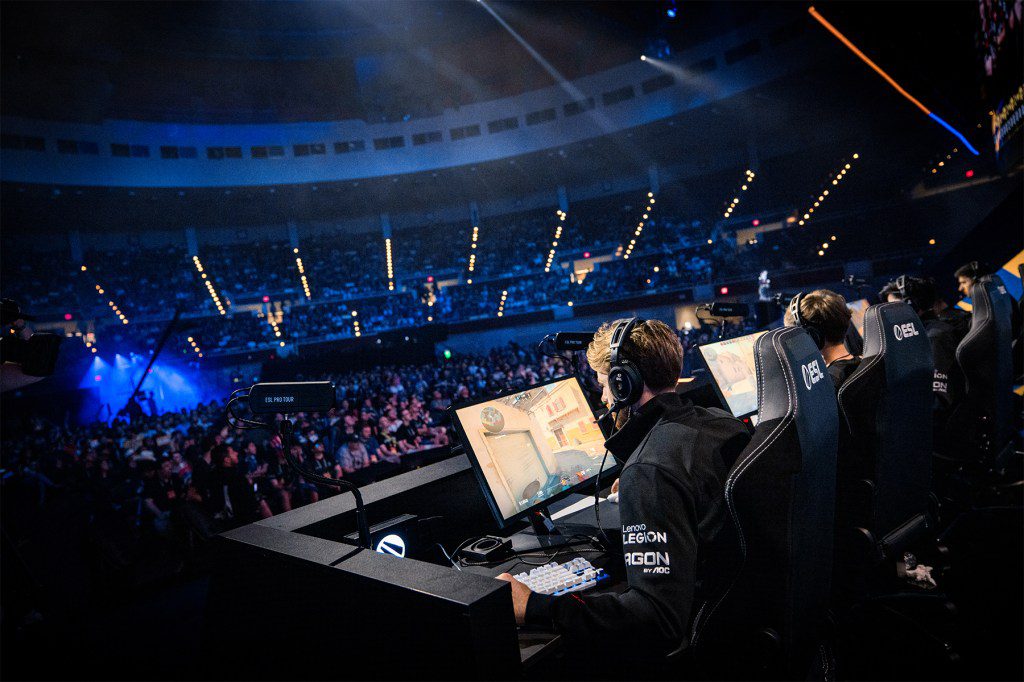
Intel Extreme Masters Dallas 2024 brought a sold-out crowd to ‘Counter-Strike’
Helena Kristiansson; ESL FACEIT Group
By 2002, with the introduction of the ESL Pro Series in Germany, the game Counter-Strike had been cemented as one of the de facto esports during the scene’s infancy. Prize pools still hadn’t topped $30,000, yet 14 teams competed online for one of four spots in the finals, played offline on LAN. The winners, Hamburg-based team mousesports, took home roughly $15,000 — not exactly career athlete money. But this first win had a deeper meaning, beginning the decades-long story of ESL and Counter-Strike that fans know today. Today, mousesports (rebranded as MOUZ in 2021) remains one of the most successful and iconic esports organizations in history.
Year over year, ESL competitive leagues and major tournaments swelled in size, gaining traction with viewers and sponsors alike. The rapid growth in attention led to an historic partnership that still defines ESL to this day: the Intel Extreme Masters. Beginning in 2007, the IEM banner would become the premier level of championship league play for games like Counter-Strike and Warcraft III. By the mid-2010s, IEM Katowice took over Poland as the Super Bowl of esports, becoming a centerpiece of the League of Legends and Counter-Strike communities. Most recently, IEM Dallas 2024, held during a North American DreamHack festival, broke records as millions tuned into a livestream to see the 100th IEM trophy awarded to team G2 Esports in front of a sold-out crowd.
Needless to say, the numbers are impressive. But the true story of ESL’s ascendance from basement meetup isn’t about the stats; it’s about the people.
Bringing Local Communities Together Globally
“ESL is where everybody can be somebody.”
More than just a clever tagline, this phrase serves as a multipurpose ethos that runs throughout all the properties under the ESL FACEIT Group banner. From rising pro players across various ESL leagues, the estimated 22 million registered users on the FACEIT platform, and the thousands of IRL attendees of DreamHack events across the globe, the focus on community building is at the forefront of the company’s mission to bring players together, better.
It begins with ESL Play, powered by FACEIT, which allows anyone with a dream of playing games on a competitive level the ability to test the waters in open tournaments online and ascend to the ESL Challenger tier — a direct entryway to the ESL Pro League. Through FACEIT, ESL gives those craving a more engrossing competitive experience exactly what they’re looking for.
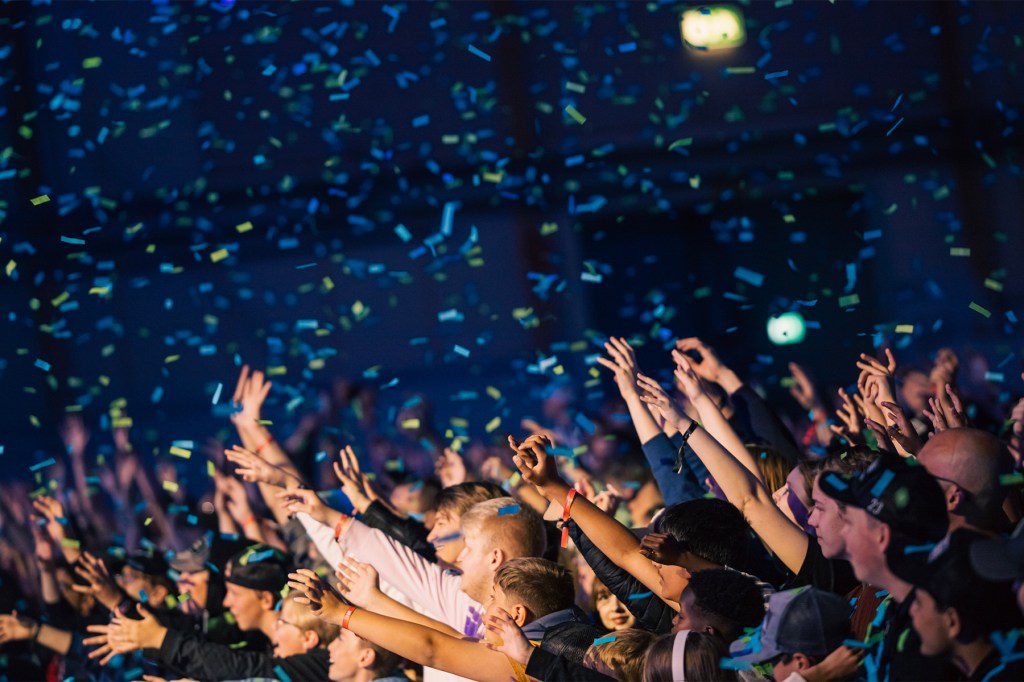
DreamHack Summer 2024 was held in Jönköping, Sweden
Rikard Fagerberg; ESL FACEIT Group
These divisions are strikingly akin to European football, as teams are promoted and relegated at the end of each season, etching the story of teams clawing their way up to the top division of Counter-Strike. There have been several instances over the years in which elite players ready for pro play have been discovered in FACEIT servers. Dozens of pro player careers have taken off thanks to being discovered in FACEIT matches.
“The core job of teams [is] to make players more successful,” Reichert said in his own 2023 interview with Esports Insider. “To give them a home, to give them the opportunity to compete, and give them the opportunity to grow. That is the core of it all. Then, the trophies come, and with the trophies comes the legacy, and with the legacy comes the test of time to stand.”
But any good sports community isn’t just built by its players or teams, but rather by the fans. That’s where platforms like FACEIT and, to a greater extent, DreamHack come into play.
Initially coming together under then-parent company MTG in 2015, ESL and DreamHack officially merged in 2020 to weave together their knacks for delivering in-person experiences for gamers of all kinds. Key to the partnership was bringing major tournaments like Intel Extreme Masters and the female-led ESL Impact League to players on the ground in Europe and North America, but ask any attendee and you’ll see that there’s more to it than just esports.
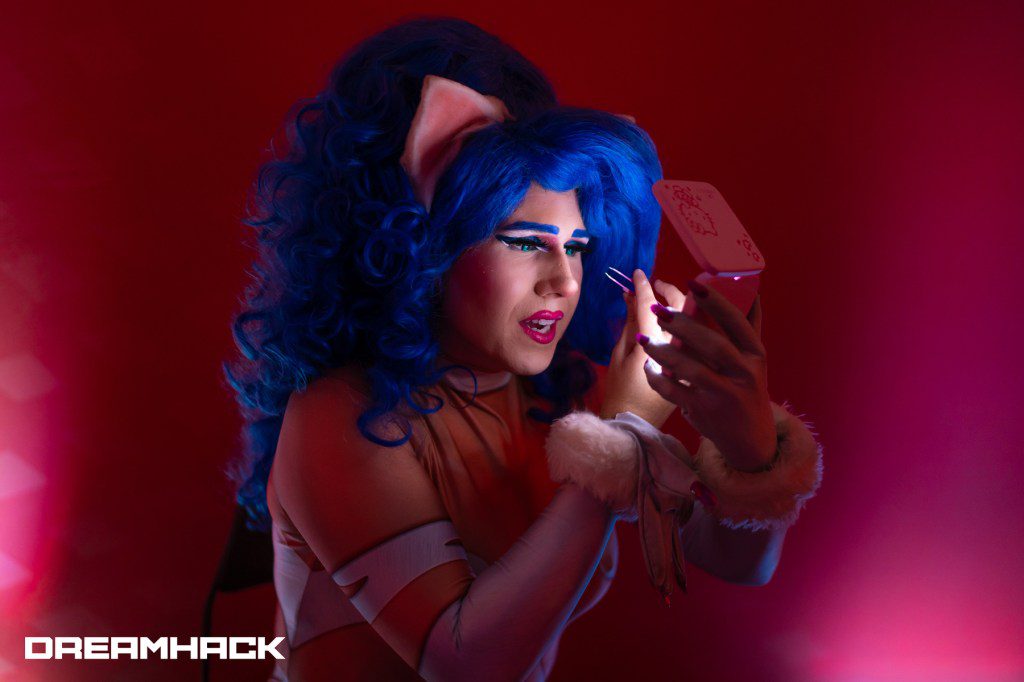
Cosplay meets esports at ESL FACEIT Group’s DreamHack events
Rachel Mathews; ESL FACEIT Group
“When we merged with DreamHack,” Reichert said, “It became very clear from the beginning that this needs to be as independent as humanly possible. If you look at DreamHack, it’s a place where gaming comes to life. It’s a community place. It’s way beyond esports; it’s grassroots communities, it’s cosplay. It’s trading cards; it’s LAN party. Basically, you find like-minded friends, primarily offline. It’s really community at its best, physically, way beyond competitive gaming.”
Attending a DreamHack event is like walking into a neon-soaked fever dream, where the sights and sounds of gaming paint the air electric as fans from all walks of life come together to celebrate mutual passions. The most recent event, held in May 2024 in Dallas, saw major championships of games like Counter-Strike 2, Overwatch, Starcraft II, and fighting games like Tekken 8 and Street Fighter 6. In the crowd are friends, families, and furries — all worshiping at the altar of esports. But just step away in any direction, there’s so much more to see.
DreamHack began in a Swedish elementary school basement in the early Nineties and has served as a place to foster communities of all kinds, from cosplayers to tabletop gamers, that can connect like minded individuals and showcase various subcultures in one fell swoop. True to the ESL ethos of #GGFORALL, it’s an event for those who feel marginalized or outcast to find their place. It’s a dream where underdog stories can be told both on and off stage.
Innovating to Thrive in a Ever-Shifting Landscape
By fostering competition and communities from grassroots beginnings, ESL has also written its own underdog story within a tumultuous industry. Despite having existed in some small form as far back as the Seventies and gaining global traction throughout the digital age in the Twenty First century, esports as a movement is still in its infancy. ESL FACEIT Group is approaching its 25th anniversary next year, yet in what other industry is the longest running organization still so young?
Many of the challenges faced by companies like ESL stem from a decentralized infrastructure. While traditional sports organizations like the NFL, NBA, or FIFA serve as large-scale governing bodies that provide (arguably flawed) structures for professional competition and the businesses surrounding them, pro gaming still has a sea of powers that remain at odds. Publishers produce and run their games, and at times have run their own leagues, to varying results. Players and teams vie for status and sponsorship, but the next great video game release could turn the tide for esports, dividing both the player base and fandom alike. Imagine how well football would take off today if the next football-like sport was already being created to launch next season.
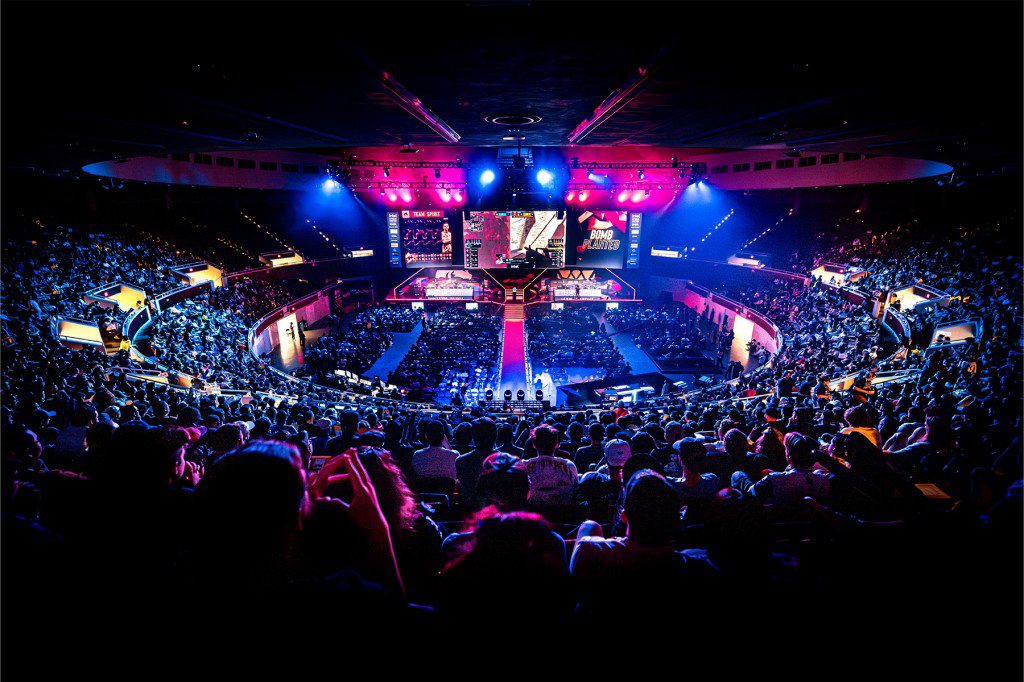
IEM events draw thousands of attendees in-person and millions of viewers online
Helena Kristiansson; ESL FACEIT Group
In that 2023 interview, Reichert laid out the limitations of esports organizers to dispel the misconception that being a corporation tips the scales of business in ESL’s favor.
“The power of a tournament organizer,” he said, “is limited by the power of the players, the publishers, and all of the outside factors that can change on a dime. Esports and its organizers are perpetually weathering a storm to forge a path forward.”
That’s why ESL has yet another ethos that is so important to the brand: being “beyond gameplay.”
As part of its model, ESL FACEIT Group doesn’t (and likely never will) develop their own games. That’s the role of publishers and, in today’s gaming landscape, partially the role of the players, whose day-to-day interaction with games dictates the updates and trends that will chart the path forward for the industry.
For ESL, being “beyond gameplay” means to focus on their greatest strengths in community building on all levels: platforming the players and bringing fans together. It also means innovating in a constantly changing landscape.
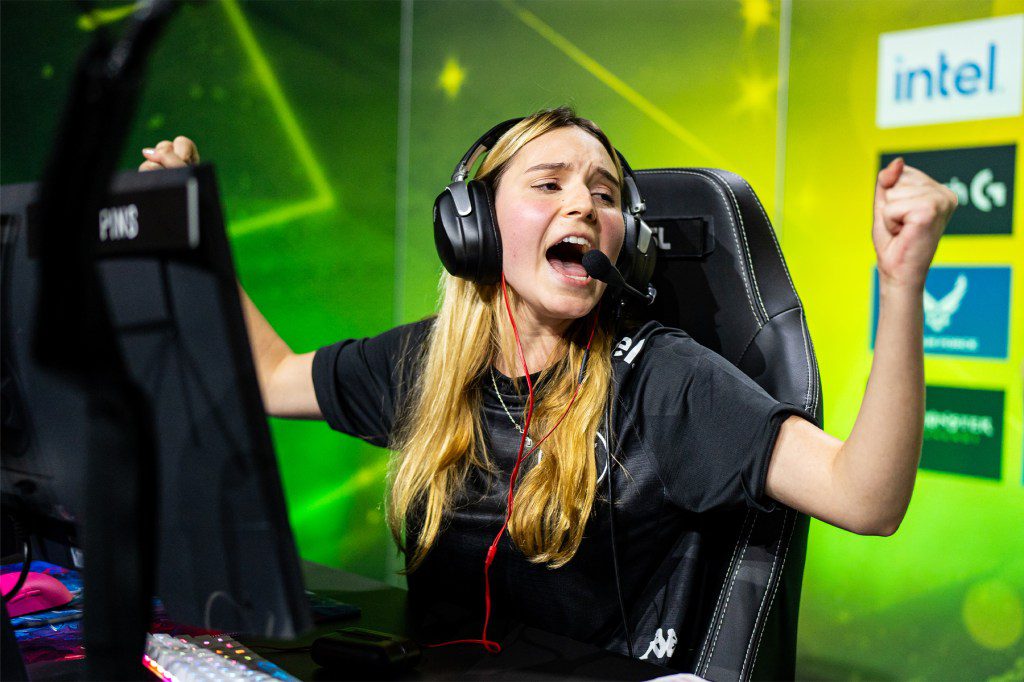
ESL Impact League is the centerpiece of the #GGFORALL movement
Luc Bouchon; ESL FACEIT Group
Part of that innovation is on a personal level with initiatives like #GGFORALL and ESL Impact League, which create a safer, more inclusive space for players and fans of all backgrounds and genders. Another part is technological, using platforms like FACEIT, whose client continues to evolve to support more functionality for both players and viewers, and will see big updates in the years ahead that align with the philosophies of #GGFORALL. Lastly, it comes with taking big risks on initiatives that can help continue the growth and mainstream appeal of esports globally.
One of those ventures began just recently with the Esports Word Cup in Riyadh, Saudi Arabia. ESL FACEIT Group serves as the organizer for the EWC, an eight-week event that’s considered to be the largest esports and gaming festival in the world. The EWC features the largest prize pool for an esports event ever, with more than $62 million up for grabs across more than 20 different titles, including Counter-Strike.
Currently underway, the Esports World Cup, is the biggest swing yet for organizer ESL FACEIT GROUP, but is only one of the many upcoming milestones in its continuously evolving story. Late August will see the next IEM Cologne, an esports institution known as “The Cathedral of Counter-Strike.” Next year, the company approaches its 25th anniversary.
But even through its many successes and years-long ascension through the industry, ESL FACEIT Group retains the spirit of an underdog at its core, primarily by never forgetting its core mission: bringing people together through gaming.
In an interview with The Esports Observer in 2021, now the CEO of the Esports World Cup Foundation, Ralf Reichert looked back on the founding days of ESL with a poignant reflection that remains more relevant than ever for the esports scene.
“It was a passion project,” he says, “[but] I don’t think we ever doubted it, really, that this was going to be big. [The] whole notion of people playing video games and competing with each other? It was a no-brainer.”


